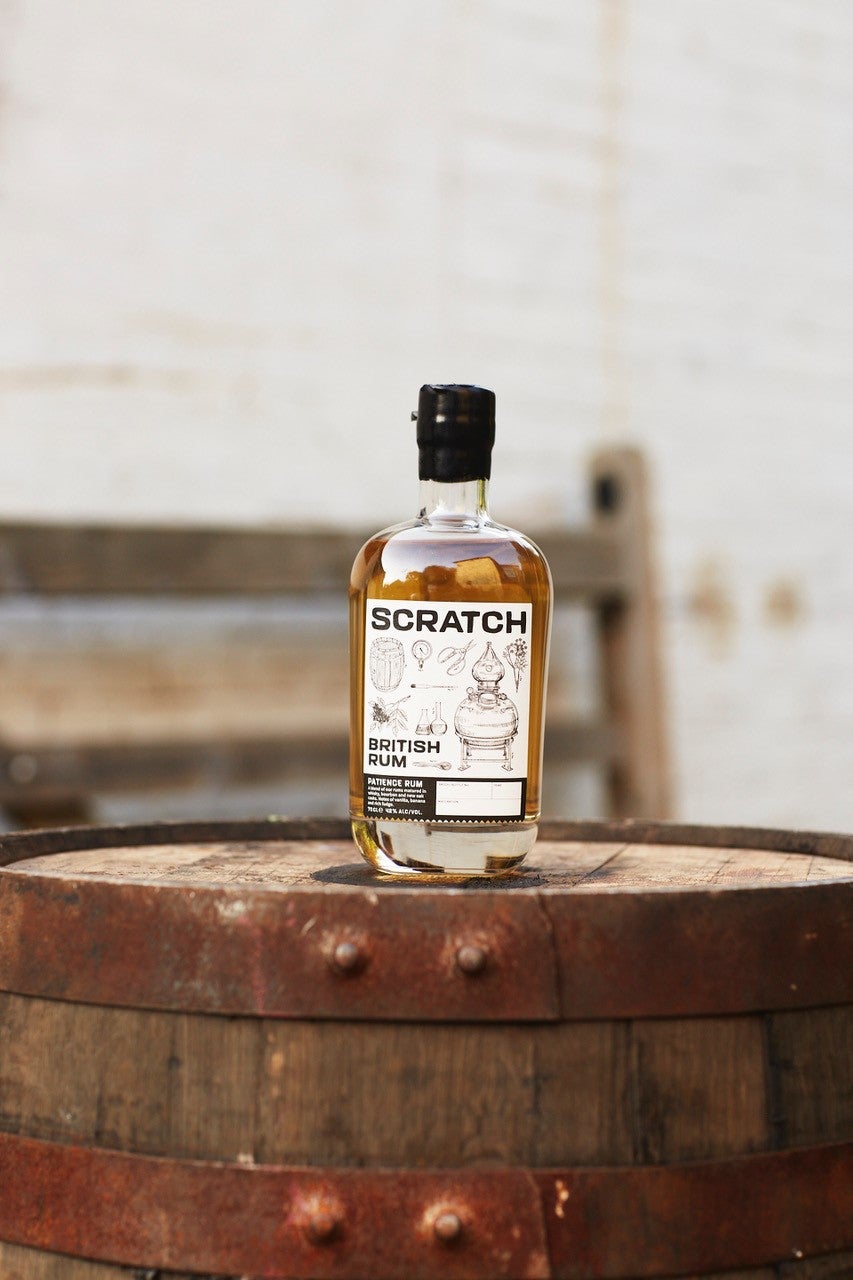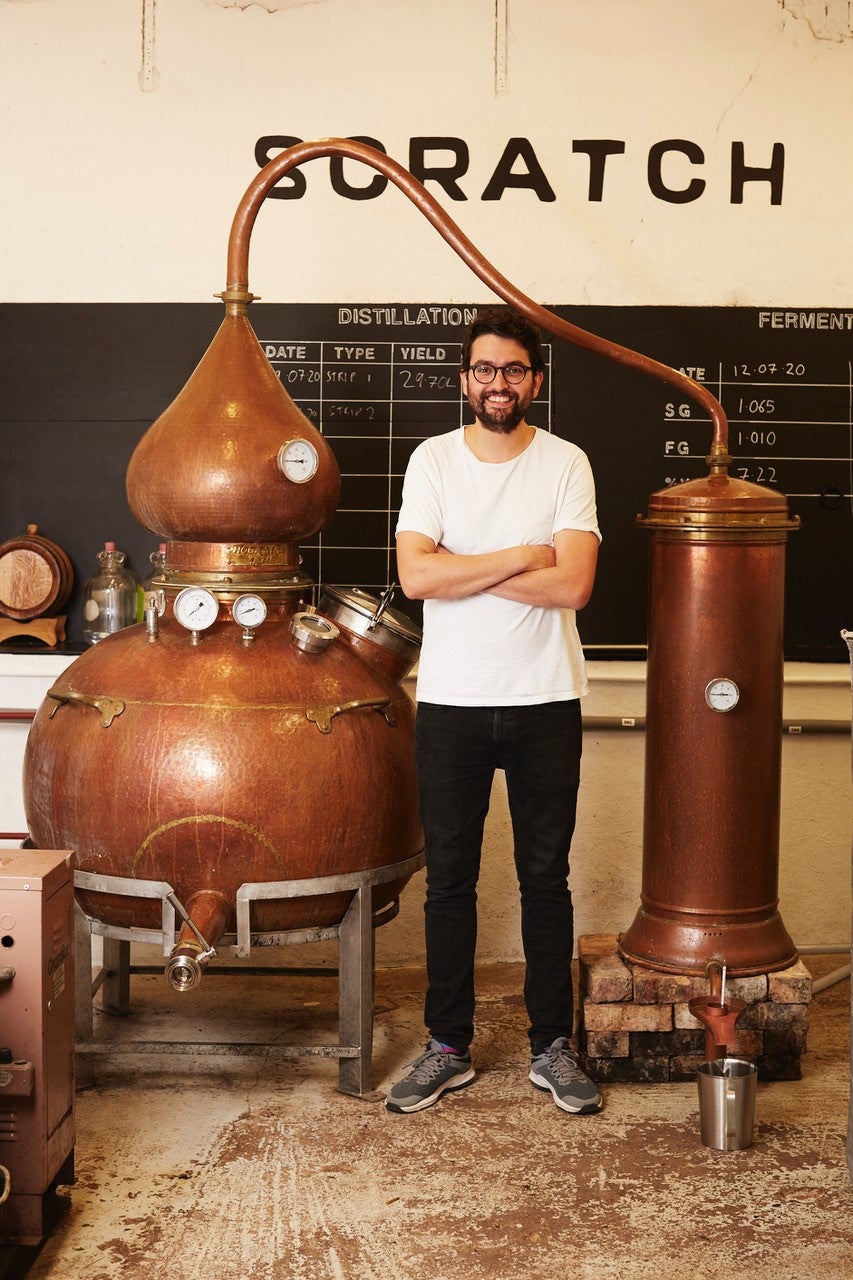How Scratch Spirits is trying to put British rum on the map
With craft brewing on the rise, small distilleries have to work hard to get noticed. Martin Friel asks prize-winning rum producer Doug Miller how he does it

Craft brewers and the appetite for their beers have grown exponentially in the UK as drinkers seek choice, flavour and a more considered approach to brewing. Such is the demand that, according to research from KPMG, the sector has grown nearly tenfold since 2008.
These brewers have blazed a trail for a new generation of craft distillers, with gin doing most of the running, but they look set to repeat the success of their brewing brethren with data from the Wine and Spirit Trade Association showing that the number of distilleries in the country increased by 28 per cent to 560 between 2019 and 2020.
One of those distillers is Scratch Spirits, focused exclusively on the production of rum, and founded and run by Doug Miller. But rather than simply replicating the existing flavours and styles of rum currently on the market, Miller is distilling a uniquely British style of rum using only British ingredients and flavours. In fact, the only ingredient that isn’t sourced on these islands is the sugar cane, for obvious reasons.
It is currently a relatively small producer, with the capacity to turn out 5,000 bottles every year across a range of styles – from Botanical and Golden to Sloe and the matured Patience rum. But with recent private investment coming in, plans are afoot to expand the barn-stored distillery in the Hertfordshire countryside. Once that has been completed, Miller expects to be producing anywhere between 10-15,000 bottles a year, which starts to get him into the meaningful production category.
And he has bold ambitions to “put British rum on the map” by sticking to the craft approach and thereby standing out from both the big producers and those smaller ones who he believes are rushing out their rum or buying it from abroad to be flavoured in the UK.
While his ambitions are big, the whole operation started out as a way to access cheap booze when he was a student.
I don’t add anything post-distillation; I ferment the molasses, use water from our well, choose the strain of yeast, and distil it in a copper pot still in the traditional way
“In 2010 I got into brewing beer, which teaches you a lot about fermentation. But I’ve always loved rum, and in 2012 I got myself a very small kitchen still, and then two years later I bought a copper pot still for £400,” he says.
When that still arrived through customs, it came with a warning note saying that it was illegal to use it without the necessary licence. So in 2016, Miller got his licence and started producing large quantities of rum. After a couple of years experimenting with various flavours and styles, he was ready to go to market, selling his first bottles in 2018.
“We are the first in the UK to produce a properly aged British rum – one of ours is five years old now,” he says.
And that rarity was recognised by the International Wine and Spirit Competition, which awarded both the aged Patience and unaged Golden rums bronze medals in 2019. Miller puts this early recognition down to the methodical approach he takes to distilling his rum.
“What I try to do is stay honest to the traditional production methods. I don’t add anything post-distillation; I ferment the molasses, use water from our well, choose the strain of yeast, and distil it in a copper pot still in the traditional way. Then we mature it in casks. It’s about flavour, not flavouring,” he says.
And while he concedes that traditional distillers in the Caribbean may have doubts about his British version of their classic recipe, he insists that what he is doing is evolving the drink while remaining true to its roots.

“It’s about building on what they have done and moving the category forward. If we can stay true to those production methods, there will always be a market for Caribbean rum – but also, I hope, for British rum,” he says.
His ambition to put British rum on the map will be met, he hopes, by taking a leaf out of the book of Japanese whisky producers. The Nikka distillery caused a sensation in 2001 when its 10-year Yoichi single malt won Best of the Best at that year’s Whisky Magazine Awards.
Since then, Japanese whisky has been accepted as some of the best in the world, and it is that example that Miller is seeking to emulate.
“I think British rum has the potential to do what Japanese whisky did – elevating a spirit beyond its traditional geographical roots, innovating and moving the category forward,” he says.
“Rum is very hard to innovate in because it has been dominated by producers who have been doing it for 400 years, so there’s no incentive to do things differently.
“But as a new industry, the opportunity is to take what they have done and try new things and combinations, with different brewers and winemakers, to create a new style of rum.”
This is partly possible because the production of rum isn’t governed by any hard-and-fast rules – unlike Champagne, for example – which gives Miller the freedom to experiment.

But this is a double-edged sword, because the very freedom he enjoys is also used by producers who, Miller says, are simply buying rum or fermented molasses from abroad to be flavoured in the UK – the antithesis of what he is doing.
“Gin has boomed, and what I have seen is gin producers getting into flavoured, spiced rums. They have the equipment and rush out a peanut-butter rum or something like that,” says Miller.
He says that while it might sell, he worries that it could be “catastrophic for a growing sector”, particularly for those trying to remain true to their craft credentials.
“It all comes down to how things are labelled. You will see stuff where it says ‘Born in the Caribbean but crafted in the UK’. It’s not lying but it is disingenuous. There should be a standard that says this was fermented and distilled, not flavoured,” he argues.
Read More:
And in the absence of anyone else stepping in to do that, Miller is working on bringing together similar dedicated rum producers to create a consortium that can set minimum standards for the production of craft rum.
But until then, he is focused on turning those bronze medals into gold, which he hopes will give him and the UK the platform to do for rum what Japan did for whisky.
Join our commenting forum
Join thought-provoking conversations, follow other Independent readers and see their replies
Comments